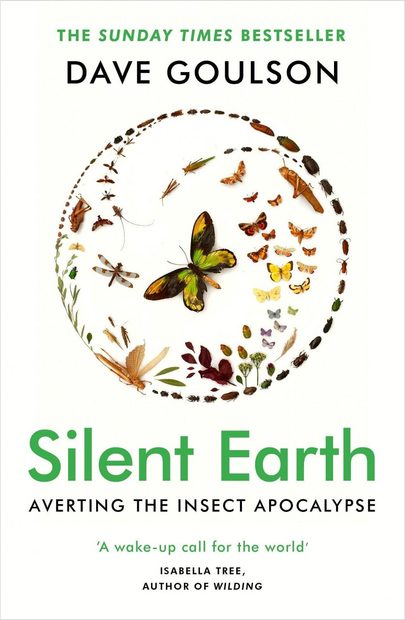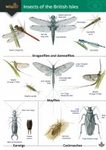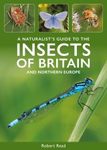By: Dave Goulson(Author)
328 pages, b/w illustrations
Drawing on the latest ground-breaking research and a lifetime's study, Dave Goulson reveals the shocking decline of insect populations that has taken place in recent decades.
![Silent Earth Silent Earth]()
Click to have a closer look
About this book
Customer reviews
Biography
Related titles
About this book
Read an extended review on our blog.
Insects are essential for life as we know it. As they become more scarce, our world will slowly grind to a halt; we simply cannot function without them. Drawing on the latest ground-breaking research and a lifetime's study, Dave Goulson reveals the shocking decline of insect populations that has taken place in recent decades, with potentially catastrophic consequences. He passionately argues that we must all learn to love, respect and care for our six-legged friends.
Eye-opening, inspiring and riveting, Silent Earth is part love letter to the insect world, part elegy, part rousing manifesto for a greener planet. It is a call to arms for profound change at every level – in government policy, agriculture, industry and in our own homes and gardens. Although time is running out, it is not yet too late for insect populations to recover. We may feel helpless in the face of many of the environmental issues that loom on our horizon, but Goulson shows us that we can all take simple steps to encourage insects and counter their destruction.
Customer Reviews
Biography
Dave Goulson is a Professor of Biology at the University of Sussex. He has published more than 300 scientific articles on the ecology and conservation of bumblebees and other insects. His books include the Sunday Times bestsellers The Garden Jungle and A Sting in the Tale, which was also shortlisted for the Samuel Johnson prize and has been translated into fifteen languages. He is a Fellow of the Royal Entomological Society, a trustee of Pesticide Action Network, and an Ambassador for the UK Wildlife Trusts.
By: Dave Goulson(Author)
328 pages, b/w illustrations
Drawing on the latest ground-breaking research and a lifetime's study, Dave Goulson reveals the shocking decline of insect populations that has taken place in recent decades.
"[...] This reader found the book literate, persuasive, sympathetic, and based both on sound science and on a willingness to grapple with the realities. Goulson is the best ambassador for small life that we have. That I came away feeling even more gloomy than before is not his fault. It is ours."
– Peter Marren, British Wildlife 33(3), December 2021
"Compelling, penetrating, devastating – Silent Earth is a wake-up call for the world. Dave Goulson matches science with eloquence and passion to spotlight the cataclysmic loss of insect life on our planet. Rachel Carson would be proud."
– Isabella Tree
"Insects are the most vivid expressions of the astounding fact of life in what may be a dead universe. Read this book, then look and wonder."
– Bryan Appleyard, Sunday Times
"Our collective lack of understanding and shortsightedness has brought us to the brink of ecogical disaster. We have disregarded the warnings for too long and simply cannot afford to ignore Dave Goulson's tremendously timely book."
– George McGavin
"Studded with engaging descriptions [...] [and] a plenitude of practical suggestions [...] This is a crusading but not a preachy book [...] I was charmed, enthused, dismayed and grieved by Silent Earth."
– Richard Davenport-Hines, The Oldie
"His magnum opus. Silent Earth is both a heartfelt letter of love to the insect world that has captivated him from childhood, and a rousing call to arms to counter the recent catastrophic decline in insects before it is too late [...] Magnificent."
– Caroline Sanderson, The Bookseller, Book of the Month
"Terrific [...] A thoughtful explanation of how the dramatic decline of insect species and numbers poses a dire threat to all life on earth."
– Booklist, starred review
"It's remarkable that [insect] decline has gone largely unnoticed by non-specialists [...] Keep dreaming, Dave Goulson. We'll need more dreamers like you."
– Ben Cooke, The Times
"Thoughtful, frightening and yet [a] hugely enjoyable book [...] This book will make you think differently about our right of dominion over the planet."
– Joe Shute, Daily Telegraph
"If Silent Earth contains a single incontestable message it is that nature – insects, flowers, plants, trees, birds and mammals, including our species – is a single system [...] This powerful book tells us that we need to act as if we understand this essential truth"
– Financial Times


































